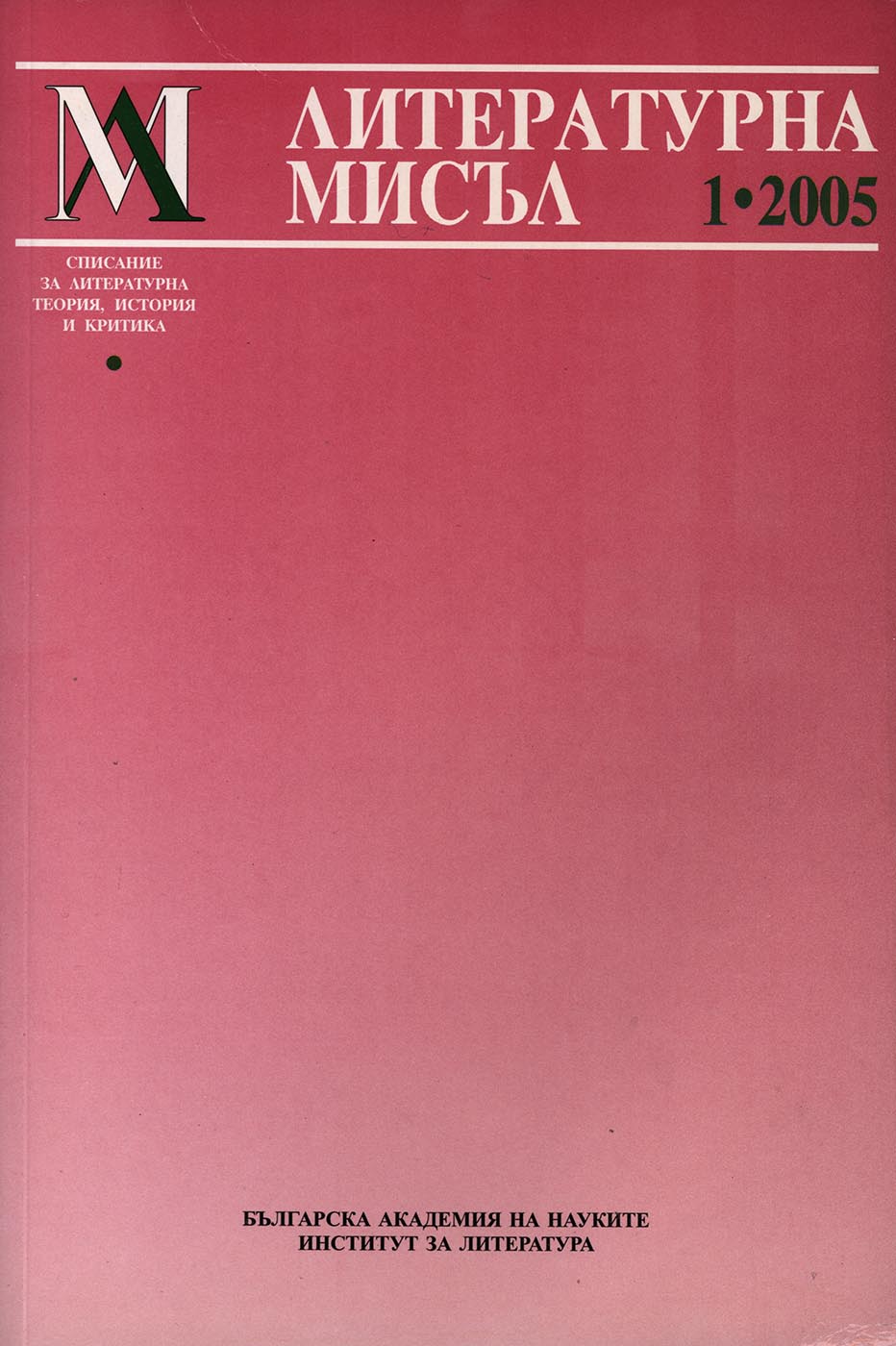Кратък речник на Ориента (или за непроявения дебат между Иван Богоров и Добри Войников )
A Brief Dictionary of the Orient (Or on the unrevealed debate between Ivan Bogorov and Dobri Voynikov
Author(s): Bisera DakovaSubject(s): Literary Texts
Published by: Институт за литература - БАН
Summary/Abstract: The study aims at illustrating the contradictory processibility in postulating the own — the stages of its heterogeneity, polemical tension and disunity. National ideology is not a construct imported just from the outside to fill a blank space; it is rather a result of the transformation and mitigation of previous, established, existant visions of self-knowledge and self-experience. The axiologies of the Bulgarian reveal their weak, debatable and downright vacillating character in a period which is usually thought to lay and use them synonymously and axiomatically. The national conception of the world appears to be a creation of local stereotypes with different accents and semantics (D. Voynikov), or, on the contrary, a creation of surmounted behavioral prejudices following the Europeanizing / Christian / Slav model (I. Bogorov). After the translation of „Janissaries“ and „The Adventures of Robinson Crusoe“ (1849) I. Bogorov is no longer apologetic in his accounts of the Bulgarian, but gives a new critical meaning to it in the light of the „West-East“ and „barbarity-civilization“ oppositions, which structure both of the translated texts. Noticing the chaos, decentralization and disunity of the „Bulgarian places“, Bogorov actually discovers the Orient in these territories, spots it in the way it is put in „Janissaries“ — as an embodiment of the Janissarian / fanatical / antediluvian-ritual / uncommunicative-concealed. Whereas the civilization he would like to see adopted in this „places“ understood as comfort is shifted to „The Adventures of Robinson Crusoe“ (personal hygiene, functional home order, social life, enterprise, impulse to domesticate people and things). The characters in Voynikov’s comedy „The Phoney Civilization“ (1871) to a great extent look predetermined by the cultural visions of Bogorov that are shared in „A few days walk around the Bulgarian places“ (1868). They could be perceived as their personified discredit. Through the naive-pathetic rejection of Bogorov’s notions and through the mechanical return to the „simple“ identity of the deux ex machina principle Voynikov lays the national identity as a unified and unique reality which can not be avoided. The dominants of the Bulgarian identity main body however look strikingly similar to the dominating specificities of the Orient fixed by Bogorov in „A Few Days...“. In Voynikov they already function as a „trademark“ of the Bulgarian. In that sense the Orient’s fundamental categories which Bogorov assimilates through the translation of „Janissaries“ (the female shyness and hiding from the world, the closed home, the standstill, etc.) are seen in Voynikov’s comedy as founding pillars of Bulgarian identity, while the typical oriental vices (rakiya and tobacco abuse) are freed from blame, seen in the light of the comical. Resembling the dictionary conspectus the present study attempts to cover a few dominant symbols of the Orient that are interpreted negatively or positively by the
Journal: Литературна мисъл
- Issue Year: 2005
- Issue No: 1
- Page Range: 29-45
- Page Count: 17
- Language: Bulgarian
- Content File-PDF

